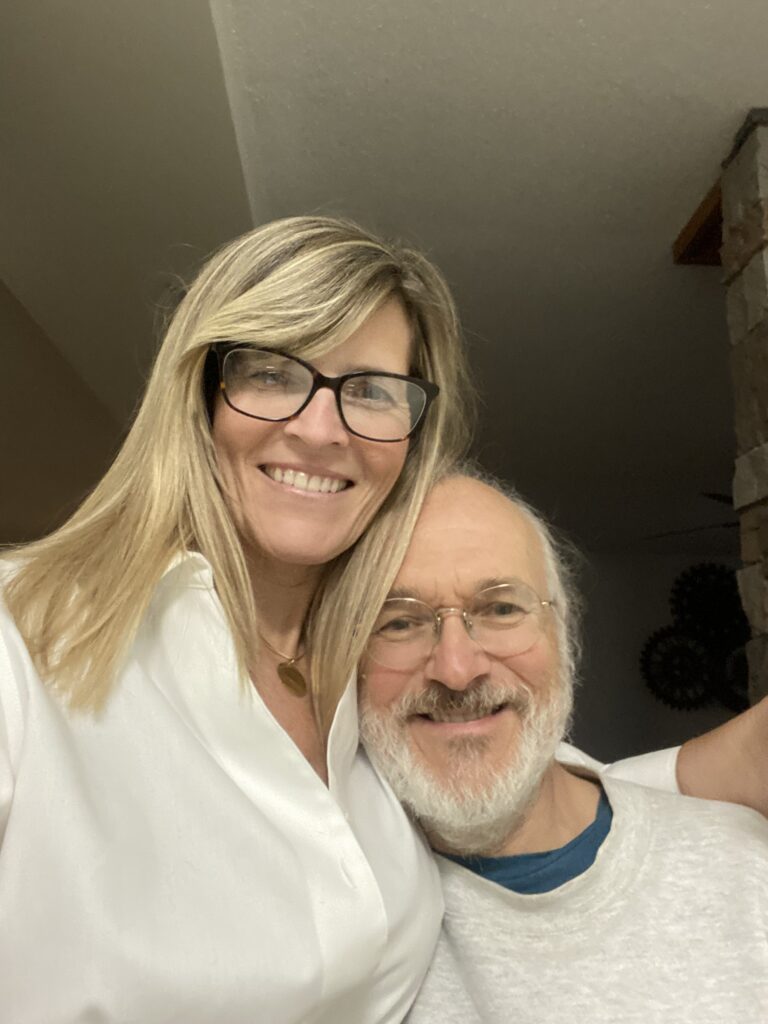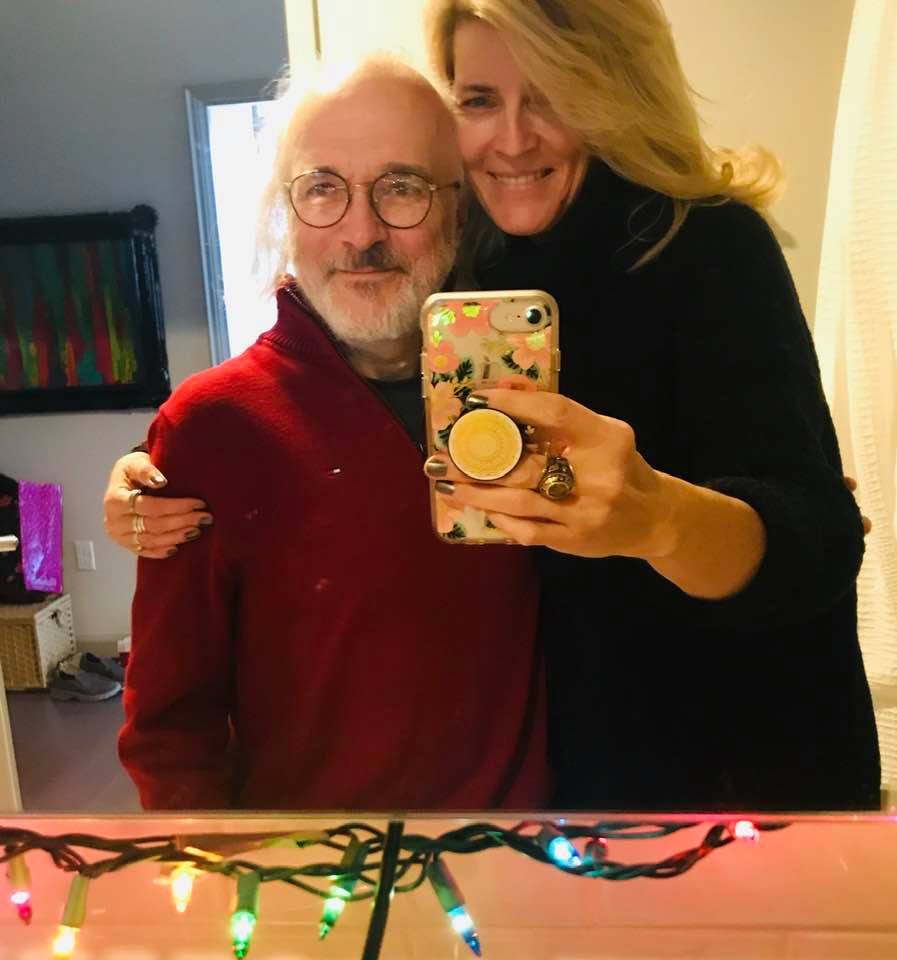A ‘SUBSTANTIAL’ DONATION IN LIEU OF TAXES? THE PLANET BEGINS TO DEFINE ‘SUBSTANTIAL’ … NON-PROFIT STATUS OF MEGA-COMPANIES LIKE BHS ARE OFTEN A TAX SCAM … plus … HOW TO ADDRESS THIS IN THE NAME OF FAIRNESS, FOR WE THE PEOLE
By DAN VALENTI
PLANET VALENTI News and Commentary
(FORTRESS OF SOLITUDE, WEDNESDAY, DEC. 7, 2011) — As the not-for-profit Berkshire Health Systems still has not responded to our series of questions,THE PLANET has done a little digging. We asked several key questions:
(1) What is the value of the entire BHS holdings?
(2) What, specifically, is the “substantial” (Mr. Colbert’s word) payment to the city of Pittsfield, in lieu of taxes? As a “non-profit,” BHS pays no property, excise, or sales taxes. In short, those rules don’t apply to them. Yes, it’s all legal. Remember, “crime” is merely a legal construct. We can’t agree on “Monopoly,” so let’s see how we do with “substantial.” Only then can we make an independent and informed assessment of the accurary of BHs’ claims.
(3) What is the value of the BHS holdings in the Cayman Islands? What is the nature of those holdings?
We don’t have the answers to these questions yet. We also had the following questions asked by Perry Mason, a prominent area attorney:
* Who owns the BHS properties?
* Are rents fair?
* Why have officers been the same for decades?
* At what point are they shareholders?
“This is big business,” Mr. Mason writes. “You hit it. The same old people are voting to pay themselves and friends great salaries. Probably the same accountants who are paid a fortune [to provide an] ‘independent’ review, just like Wall Street. … Big business, big questions.”
Looking into the “Not-for-Profit’ Racket
Determining a net worth of the entire BHS empire becomes relevant is gauging the word “substantial.” You remember that Steven Colbert, a BHS insider responding apparently with the blessing of the company, said that in lieu of taxes (non-profits play by a different set of rules that the rest of us), BHS makes a “substantial,” voluntary “donation.”
Well, just as Mr. Colbert quibbled with us on our use of the word “monopoly” in describing BHS’ position regarding health care in Berkshire County, we want to know what “substantial” means. Give us an exact number, BHS, and we can decide for ourselves.
“Substantial”?
THE PLANET has one piece of the definition.
BMC Inc. Alone Has Property in Pittsfield Worth $118,374,460
Using the city of Pittsfield website and going to the assessor’s online abstract of what is contained in the books, Berkshire Medical Center Inc. — which is just one of 27 companies that are part of the BHS Empire — has 50 listed properties in the city. The assessed valuation of those 50 properties is $118,374,460.
Yes, we understand BHS is a not-for-profit. Yes, we understand they do not have to pay property tax. But has anyone asked why they are considered a non-profit? Has anyone asked whether, given the revenues generated there, non-profit status can be reasonably justified?
As a thought experiment, let us ask the following question: What would BHS pay in property taxes at the city’s established commercial rate of $30.95/thousand? ANSWER: It would pay $3,663,689 in taxes. We’re talking GE-type money here.
What would BHS pay if the city gave it a huge break and charged at the residential rate of $15.19? That’s the rate Mary Jane and Joe Kapanski pay. BHS would pay $1,798,108. Do you think the city could use those revenues?
Keep in mind that is just the property value of BMC. We ask, anew, then: What is “substantial”? $100,000? $300,000? $500,000? Is that anything more than chicken feed?
We don’t know, but we do know that with BMC Inc., $118.37 million doesn’t appear anywhere on the tax rolls. It’s legal, but is it right? We don’t know. THE PLANET merely asks the question so we may continue an intelligent discussion.
PILOT Program: How to Make a Tax Scam ‘Legal’
THE PLANET is also confused. Is the “substantial” contribution that BHS makes to the city a “donation” or a “payment in lieu of taxes”? Does it make a difference, legally or otherwise? If it’s a donation, it means that BHS is not obligates to pay one cent. Why would it, then? There are three possible answers:
(1) To be a good corporate citizen
(2) To buy political influence
(3) A combination of (1) and (2).
Fact is, though, that this mega-corporation — which, granted and indisputably, provides the area with a vital service and provides it as a high level of quality (a proposition that NEVER has been at issue in this discussion) — pays no taxes to do business in the city of Pittsfield. It does, however, receive municipal services. Is that fair? Just? Proper?
A Comparison of ‘Substantial’
For comparison of “substantial,” Emerson College in Boston, a not-for-profit institution, has property worth $178 million. It pays the city of Boston $139,000 annually. Northeastern University has holdings in the Hub of $1.3 billion (with a “b”). In 2009, Boston would have received $41 million in taxes — if the properties were taxable, but like Pittsfield with BHS, the city never sniffed one thin dime.
So, if BHS’s “substantial donation” to the city payment-in-lieu-of-taxes, that is, part of the formal PILOT program? According to Matthew Englander, Boston’s director of tax policy, “The PILOT program is not required by law. Institutions volunteer to participate.” The PILOT donation system began in 1985. Using Boston figures simply as a gauge, in 2009, Boston schools would have paid $190.2 million at the regular tax rates. They are, like BHS, not-for-profit. Consequently, their PILOT “donations” amounted to 4.6% of that total, or about $8.7 million in PILOT money (source: upiu.com).
Using the 4.6% figure as a guide and applying it to Berkshire Medical Center Inc.’s holdings, we arrived at a PILOT donation of $5,445,225.16 to the city of Pittsfield. Anyone want to wager that the BHS PILOT donation doesn’t approach that figure … and that’s just the assets held by BMC and not any other Pittsfield holdings. This would suggest that BMC does not participate in the formal PILOT program but rather makes a “voluntary donation” that it defines as “substantial.” Who’s kidding whom?
We ask again of BHS: Define “substantial” with a number, so we may more accurately judge whether your company’s “donation” to the city of Pittsfield — which, as you know, is hurting financially right now — is anything more than peanuts.
‘A Lot of These Organizations Shouldn’t be Tax Exempt to Begin With’
Elizabeth Daley is a former city councilor from Michigan. She is researching Boston’s PILOT program.
“A lot of these organizations shouldn’t be tax exempt to begin with,” says Daley. She says that the money spent by many such institutions is not being spent on infrastructure or on good or services that could be by any stretch considered “charitable.” Where does that money go? She says the money is too often used to pay the institutions top executives. “I think there should be mandatory taxation on a lot of these entities,” she says. Sound familiar?
This leads to an interesting question: Why is BHS defined as a non-profit company? When did it achieve its non-profit status? Are the conditions that were in place when it obtained the lucrative non-profit designation (lucrative for itself and not for city taxpayers) still in place? With the income amounts reported on its 990 Form to the IRS on Aug. 15, 2011, in nine figures, can BHS reasonably be considered “not-for-0profit”?
Time for the Pittsfield City Council and the Mayor to Get the Non-Profit in to Do Some ‘Splainin’
Should the Pittsfield City Council request that every non-profit receiving these amply generous breaks courtesy of the taxpayers make a public presentation in an open hearing on its finances? We think this is fair and reasonable. We also request that mayor-elect Dan Bianchi get on board with such an effort. A strong, united political push could get this done. It could mean millions of new dollars for the city of Pittsfield.
The City Council has the power to force these hearings. In Boston, there is such a movement now under way. The City Council there “plans to gradually ask institutions — hospitals and colleges —to pay 25% of what they would owe if they paid taxes to the city” (upiu.com, quoting the Boston Globe). We think that is a fair number for “non-profits.” Pay the taxpayers 25% of what should be your fair share.
THE PLANET recommends that the Pittsfield City Council begin traveling along this road, earnestly. You want an answer to the city’s budget woes? That might be it.
————————————————————
RAINDROPS KEEP FALLING, BUT NOT ON OUR HEADS. WE DDOGE THEM AS NEATLY AS NON-PROFITS DODGE THEIR FAIR SHARE OF TAXES, SO …
“OPEN THE WINDOW, AUNT MILLIE.”
LOVE TO ALL.















DV, you write, “Using the 4.6% figure as a guide and applying it to Berkshire Medical Center Inc.’s holdings, we arrived at a PILOT donation of $5,445,225.16 to the city of Pittsfield.”
Please correct your figures. You state that on an assessed valuation of $118,374,460 and a tax rate of $30.95/thousand on commercial property in Pittsfield, that BHS, Inc.’s local property tax bill would otherwise amount to $3,663,689 per year.
4.6% of $3,663,689 (the possible PILOT donation) calculates to be $168,529.69 NOT $5,445,225.16.
Other than that math error, your column today hits a grand slam.
A property isn’t tax exempt because of the corporation that owns it. If that were the case, why wouldn’t every industry have shell ‘not for profits’ own physical assets? The property owner also has to demonstrate that the users and operators of the property, as well as the owner, are not profiting from it. For example, let’s say the hospital allows Starbucks’ to open a coffee counter. The Starbucks’ personal property is taxed, but is the shop area still real property tax exempt?— no. If BMC allows for profit contractors or affiliated companies to use any of those property tax exempt holdings, then they really should have some portion of them taxed. This level of analysis takes quite a bit of effort when you consider the scale of a conglomerate like BMC.
The PILOT is hush money. The city doesn’t want the hassle of unraveling the conglomerate and BMC doesn’t want to get into the cost allocation of all of its property for tax exempt purposes. BMC says, ‘okay, we dont want to deal with this , what is a large enough amount of money that we can contribute so that the tough questions don’t get asked?’ The City, ‘duh, $100k plus annually increasing it a little sounds like a lot of money to me’. BMC, winking slyly, ‘DEAL!!!!’.
Pretty plausible I think….
if the number has not surfaced to this point after all the interest in it it must be because they are ashamed of it. Or maybe someone is making a bookkeeping adjustment in the bowels of city hall.
Surely your good honorable friend Jimmy Ruberto knows the figure and would be happy to share it with you Dan. What is to hide anyway? If they can’t give the figure can they at least say why they cannot give it? It must be on some easily accessible computer file.
The city is and is going to hell lately. Anyone notice the violent crime here the last six years?
We wantColbert take on this!
……people better wake up.
Think its a great idea for the new mayor and council to hold heraings into all the nonprofits in the city. If they are legit and can make a case, no problem, if htey can’t then they got to start paying taxes. Simple. City could reap millions. Also a question I had: How many other nonprofits in the city pay anything to the city in lieu of taxes?
ANYTIME
THE PLANET agrees. We shall be posting more on that.
It’s amazing how fast everything turns to anarchy when the good ol boys get booted out.
DV, here’s the definitive study: “Payments in Lieu of Taxes — Balancing Municipal and Nonprofit Interests” by Daphne A. Kenyon and Adam H. Langley, Policy Focus Report, Lincoln Institute of Land Policy, 2010, Cambridge, Mass..
Link: http://www.princetontwp.org/1853_1174_PILOTs-PFR-final.pdf
RAY-O
Thank you. I shall read and study.
From the Pittsfield Gazette, March 10, 2009, “New Business” section:
“A petition from Terry Kinnas requesting the City Council to request a donation/payment from Berkshire Health Systems as a result of BHS reported surplus”.
THAT’S INTERESTING! Although it didn’t say how much of a donation/payment, but 2009? They haven’t been doing this for a long time?
Molly it shows that Mr. Kinnas has been on the ball and working for the taxapyers for a lot longer and a lot harder than the bums we’ve been electing to office. Cant wait to see Terry go to work on the school department fat.
Now that I’m not fooling around and playing “Devil’s Advocate”, I have to agree with much of what you stated, Dan. Shouldn’t the amount of money that any and all persons and businesses (both forced as in taxes as well as contributions) pay to the city, along with any and all grants given to the CIty be a matter of pubic record? Shouldn’t there be a line-item city budget that shows all revenues and expenditures? Why is this so difficult to find? (I’ve been looking around all night for it and I can’t find anything). I did come across a few items where Mayor Ruberto had to petition the City Council to accept donations of a few pieces of property (likely so that we would pay to have them torn down) but he was still required to do that, so this MUST be a matter of public record! Otherwise, what’s to stop him from just walking off with their donation (not that he would do that, but there MUST be rules that need to be followed regarding this and it must be a public record!).
I also agree with you on WHY bhs is a non-profit and what justifies it? I’d be willing to bet that it’s all legal and tidy, but from the bigger picture, why are these big profit corporations allowed to be considered “non-profits”? Isn’t this how Warren Buffet’s tax rate is lower than his secretary’s — because he gets paid from a “non-profit”? This city, this state, and this country are all in financial ruin and yet this kind of stuff continues? Steven Colbert was right in some ways – how is it that Williams College and Mass General are non-profits? When I think of the % of income taxes that I’ve paid, it makes me FURIOUS!
BHS lists their total FY 2010 Revenue as $375,221,431 and total expenses as $384,362,294 for a LOSS of $9,140,863. Wages are the biggest piece of the expenses, at $255,492,704. That’s a LOT of wages!!! That would come out to every FTE (full time equivalent) making roughly $93,000. Since BHS is our largest employer and the median income in Pittsfield is (I think) around $33,000, that’s quite a difference. Total assets are listed as $404,120,015. So if you’re losing 9+ mil a year, how do you get assets of 404+ mil? I must be very naive…
It’s how the rich stay rich.
Berkshire Hathaway isn’t a non-profit. But between the low 15% tax rate on capital gains, and the cap on Social Security, Buffet pays a low tax rate.
BHS executives make alot of money. Physicians don;t do so bad either.
Molly, you write: “Isn’t this how Warren Buffet’s tax rate is lower than his secretary’s — because he gets paid from a “non-profit”?”
No, Warren Buffett is NOT getting his paycheck from a non-profit, nor is that how Buffett earned or accumulated his wealth. Nor is it accurate nor honest to say that WB’s tax rate is ‘lower’ than his secretary’s. In fact, comparing ‘apples to apples’, Buffett’s tax rate on his earned income is significantly higher than his secretary’s because WB’s annual compensation from Berkshire Hathaway is much higher than his secretary’s annual compensation from the firm putting WB into the highest bracket on earned income. Where WB does benefit from a tax rate available to anyone who buys and holds stock for more than one year is on capital gains, the profit from sales of his assets. That capital gains rate is 15%. If WB’s secretary has any Berkshire Hathaway stock that she’s held for more than one year and if she sells same for a profit then she as well has that same low 15% capital gains tax rate on her profits. The good news is that you, Molly (and DV, and even Scott), can do the same thing as WB and avail yourself of the same low tax rate. If you buy an asset like a stock in a company and hold it for at least 12 months, and then sell it at a profit, your tax rate on your profit is only 15%. In the 1960’s, Buffett loaded up on $65 stock in a company in which he sought to invest and manage. He’s held onto that Berkshire Hathaway stock for decades and the value of that stock has commensurately increased as a result of his wise management of the firm. BRK-A is now $116,000 per share (That’s not a typo). WB is now in his 80’s so he’s at a point where he is selling off some of his shares at a profit and when he does he pays the 15% capital gains rate (available to everyone) on that profit just like you can do if you sell stock at a profit that you’ve held for more than one year. Hope this clarifies the difference between earned income and capital gains and the respective tax rates that apply.
You took the words right out of my mouth Ray O, however you omitted that the capital gains rate is at its lowest in I believe at least 30 plus , if not 50 yrs, in 1976-77 it was almost triple at 39.9%…here is the link to Buffets Op-ed in the NY Times where he makes his case for raising the capital gains tax rate…
http://www.nytimes.com/2011/08/15/opinion/stop-coddling-the-super-rich.html
@Hilly…Nice to see you contribute something other than Krol bashing and questions to the blog my good friend. Say what you want about Councilor Krol, but after listening to his Good Morning Pittsfield show, the guy has great taste in music…
Also, here is a link with the history of all tax rates in the US, corporate, individual , dividends and capital gains…The current capital gains tax rate, 15%, is at its lowest in over 70 yrs, although it is expected to go back up to 39% for this next yr…
http://seekingalpha.com/article/189189-u-s-dividend-cap-gains-tax-rate-history-possible-relevance-to-future-taxation